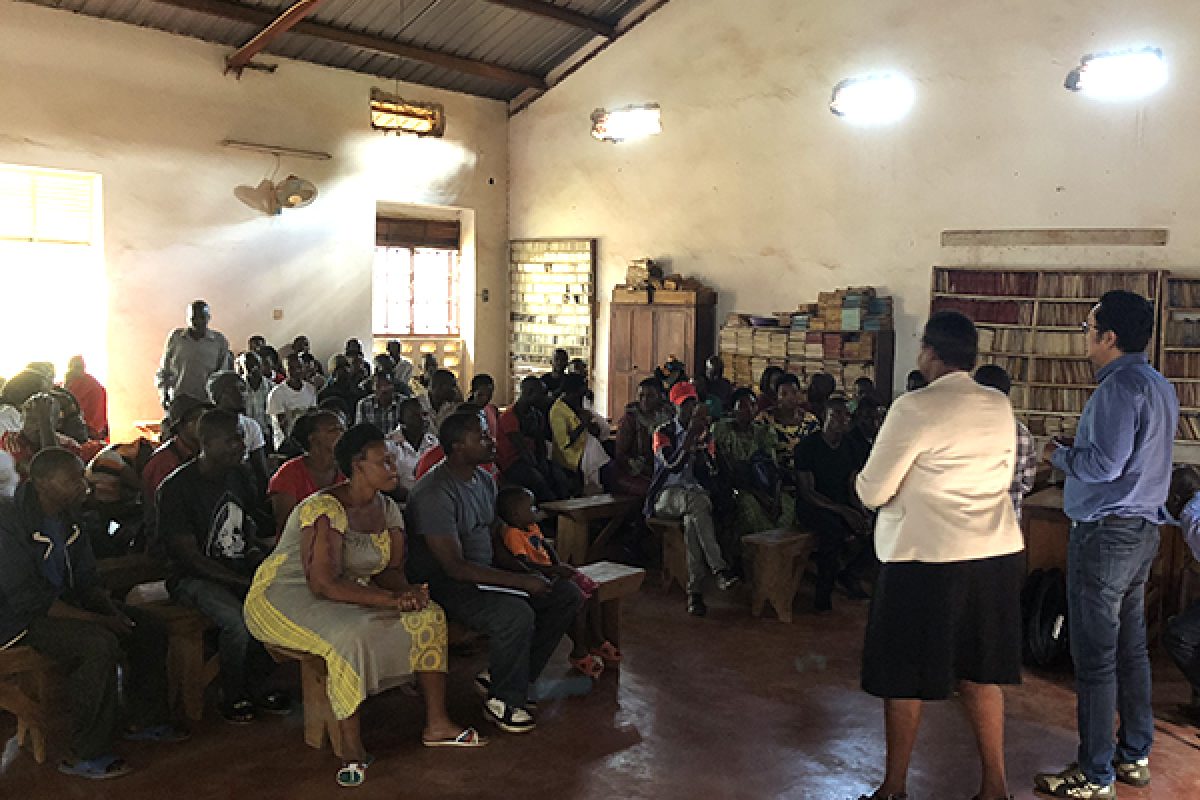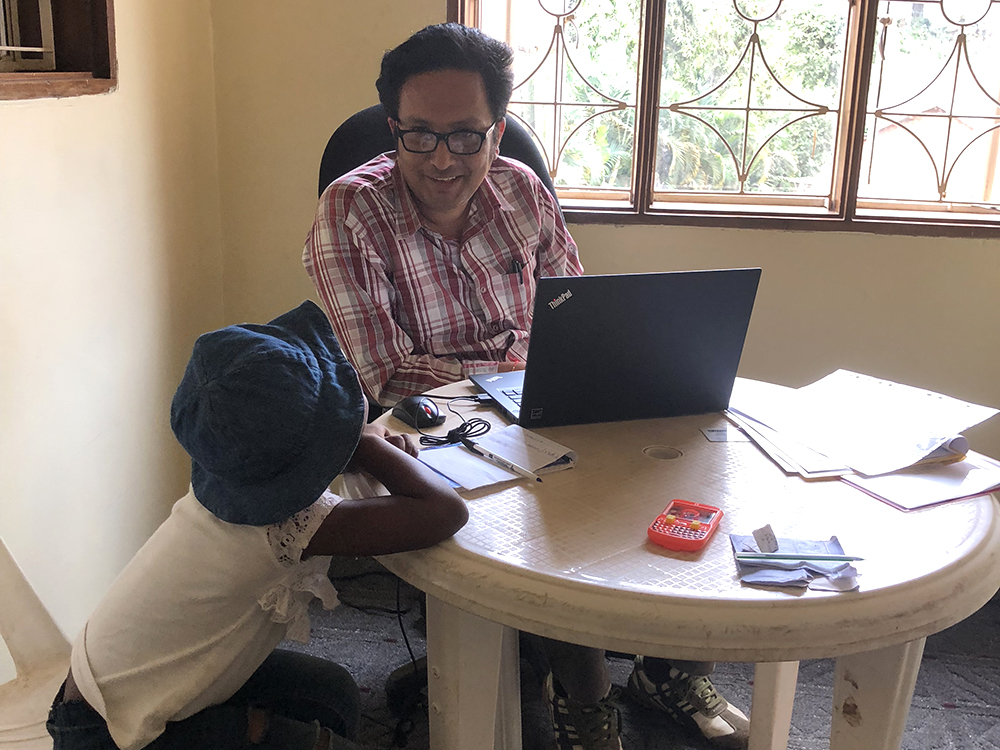Responding to Sexual and Gender-Based Violence in Uganda

“Breaking the stigma around sexual and gender-based violence to overcome its under-reporting is one of the main challenges we face in Uganda,” explains humanitarian expert Madan Bam. “Power imbalances, poverty, illiteracy and trauma are among the root causes of the problem.”
The phenomenon of sexual and gender-based violence (SGBV) is widespread among the refugee population in Uganda. Among the contributing factors are the limited human and financial resources of those who work against it, namely, the police, community services, health providers and legal institutions.
Madan Bam is a SGBV expert deployed by the International Catholic Migration Commission (ICMC) through its resettlement deployment scheme. A former English teacher, he has worked with refugees since 2008, when he started providing child protection and community services to Bhutanese refugees in his home country, Nepal.
Today, Bam’s work focuses on responding to and preventing sexual and gender-based violence in situations of displacement. For the past four months, he has been working in Uganda’s capital city, Kampala.
A relatively small country in central eastern Africa, Uganda, which has around 44 million inhabitants, currently hosts around 1.3 million refugees, the largest refugee population on the continent.
Affected by prolonged conflicts and instability, South Sudan, the Democratic Republic of the Congo (DRC) and Burundi are the top three countries of origin of refugees in Uganda. South Sudanese alone account for over 1 million.
Uganda is known for its generous approach to hosting refugees. They enjoy relative freedom of movement, equal access to primary education, healthcare and other basic social services, and the right to work and own businesses.

However, the situation is quite different in the capital Kampala, where over 100,000 refugees of different nationalities live. “Unlike refugees living in settlements, urban refugees do not receive humanitarian assistance and are supposed to support themselves. This brings a lot of challenges and a lot of vulnerabilities, forcing many young women and girls to engage in negative coping mechanisms such as survival sex,” explains Bam.
“Among the refugee population in Uganda, sexual and gender-based violence is widespread but normalized,” Bam says. “Harmful practices like child or early marriage are prevalent and socially accepted among South Sudanese and Congolese. While women and girls are most affected, an increasing number of male survivors have been identified among the Congolese population.”
Bam is working to minimize SGBV. He provides capacity-building training to organizations and authorities, ensuring that there is a clear understanding of the phenomenon as well of the mechanisms to address it. Relatively simple solutions, like better lighting along the most frequented roads, can also help reducing the number of incidents.
Other activities, such as ensuring that safe houses are available and that medical care, psychosocial and legal support are easily accessible are other measures being taken to reduce SGBV. Education plays a major role, as do activities specifically targeted to children and youth to make them aware of the problem.
“The work I do is really challenging. I hear many horrible stories of torture, rape, killings and every time I do, I think that I could have been that person too if I was born there. It could have been me,” Bam says. “Yet, I am still positive, because I am able to assist some of the people I meet and I really feel grateful that I am able to contribute to the good cause.”
Madan Bam is one of three SGBV experts recently deployed by ICMC to operations led by the UN Refugee Agency (UNHCR) with the support of the government of Canada to strengthen the international protection response to vulnerable refugee women and girls. The other two experts work in Ethiopia and Costa Rica.
Since 2013, Canada’s sustained support has allowed ICMC to provide additional experts to UNHCR’s operations, enhancing capacity in areas like resettlement, refugee status determination and child protection.